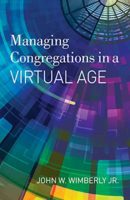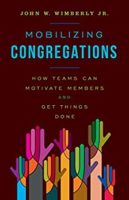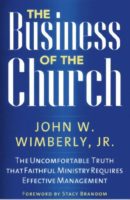In strategic planning, congregations think a lot about their “brand.” What do people think of when they drive by or hear the church’s name? Do they associate the congregation with great music, inspiring preaching, effective social justice work, quality day care, or self-help group meetings? Lately, I have been recommending to my clients a brand that needs to be built by congregations across this country: A congregation where people can trust each other and will be trusted.
In a vast desert of mistrust, congregations today need to be an oasis of trust. As the Psalmist wrote (9:10), “And those who know your name put their trust in you, for you, O Lord, have not forsaken those who seek you.” Would it not be amazing for our neighbors to look at congregations in our communities and say, “Those folks trust their God and each other. Maybe I should visit and see if I can join that circle of trust.”?
As a nation, we are facing a collapse of trust in institutions and in one another. It is impossible to build a nation, community or congregation without trust holding it together. Without trust, everything else becomes problematic. When millennials say they are “spiritual but not religious,” they are acknowledging the importance of spiritual faith. Indeed, a Pew Poll found that two-thirds of them say they are “absolutely certain God exists.” For millennials, the problem isn’t God. They problem is institutional religion—and institutional education, corporations, and government. As a group, millennials don’t trust institutions (and increasingly, neither do many of the rest of us). Since congregations are institutions, the millennials are predisposed to distrust them.
Losing trust
In a society where trust has become so problematic, would a congregation known as trustworthy and trusting be phenomenally attractive to millennials and other generations? I think so. However, too often the opposite is the case. The toxicity of distrustfulness is inundating many of our congregations, sometimes with good reason. Clergy guilty of sexual misconduct; governing boards making bad decisions with a congregation’s finances; congregations preaching about social justice but not actively working for it; volunteers not doing work they promised to do; judicatories selling off church property as though sacred land were a commodity; members arguing with each other as though they were on a cable talk show. Such questionable actions generate suspicion by providing evidence that congregations are no more trustworthy than any other institution.
Recently, I conducted a strategic planning process in a congregation where some members feel trust has been betrayed. I told them the obvious: they had to rebuild trust. One member plaintively asked me, “But how? How do we rebuild trust here when, in my opinion and that of quite a few others, our trust has been abused?” I paused, thought a while, and said, “The only way I know to rebuild trust is to trust people I don’t currently trust. Someone has to break the cycle of distrust. It is as simple and incredibly difficult as that. It starts with me and each of us.”
I went on to say that we can’t blindly trust people who have betrayed us. To use a phrase that became popular in the diplomatic efforts to stop nuclear proliferation, we must “trust but verify.” We need to build covenants and systems that enable us to believe that our trust is respected, that our trust is reciprocated with trust from others.
Earning trust
If I were a congregational leader today, one of my highest priorities would be to build a culture of trust—a culture worthy of trust, a culture that is trusted. Without trust, everything else in ministry will be difficult. Without trust, we simply reflect the world in which we live—a world where people constantly suspect that someone is pulling a fast one on them.
In 1947, when my father was introduced to a group of strangers as Rev. Wimberly, many, perhaps most, of the people present saw him as a trustworthy figure. Seventy years later, when I am introduced as Rev. Wimberly, I assume that many, perhaps most, of the people present wonder whether I am trustworthy. I don’t blame them. I welcome the challenge. It is my responsibility to prove that I am trustworthy. It is also a congregation’s responsibility to prove it is trustworthy.
Building congregations that are viewed widely as trustworthy is a fundamental task for religious communities in the 21st century. We have a theological and ethical responsibility to build such communities. If we are successful, people will stop driving by our congregations and instead drive in, park, and check us out.
John Wimberly is an experienced pastor and consultant. As a consultant, he has worked with congregations and judicatories on strategic planning, staff designs for the 21st century, and congregational growth as well as financial and administrative management. He has MBA, MDiv, and PhD (theology) degrees. His books focus on effective management and leadership. John believes congregations can have a bright future!




